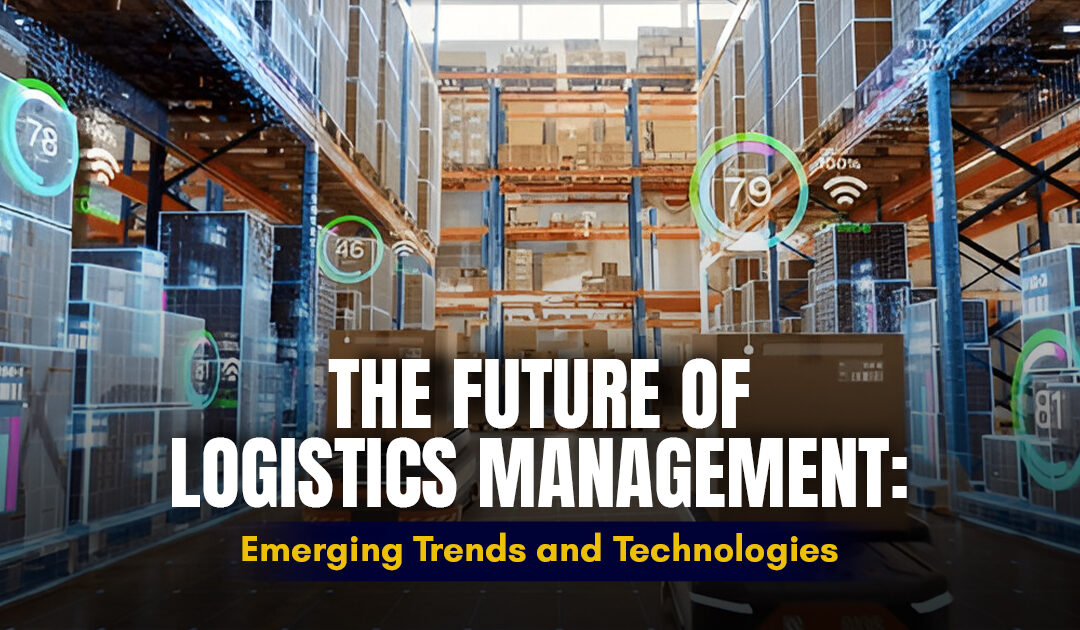Have you heard that the logistics industry is undergoing a huge transformation? It’s true.
Technology stops for no one and its advancements driven by the changing customer expectations, global economic shifts, has led to the reshaping of the logistics industry. To remain stable and successful, the logistics companies must embrace the latest trends and technologies coming their way.
The rapid evolution of technology is changing the way goods are transported, stored, and delivered across the world. With developments in automation, artificial intelligence, and data analytics, logistics companies can now work more efficiently than ever before. These technologies don’t simply streamline operations but also increase visibility in the supply chain, enabling businesses to respond quickly to evolving market demands.
Also, changing customer expectations play an important part in this transformation. The consumers of today want quicker delivery times, real-time tracking, and increased transparency in the shipping process. As a consequence, logistics companies are being asked to innovate and take on new solutions to meet these expectations. This means implementing smart warehousing systems, using drones for last-mile delivery, and leveraging blockchain technology for secure and efficient transactions.
Global economic shifts, such as changes in trade policies and the effect of events like the COVID-19 pandemic, have further sped up the need for logistics companies to evolve. To remain stable and successful in this dynamic environment, logistics providers need to adjust to the latest trends and technologies coming their way. However, this change is not just about keeping up; it’s about thriving in a competitive field demanding agility and innovation.
Let us now discuss the five futuristic practices in the logistics industry:
- Automation and Robotics: With promised increased efficiency and enhanced accuracy, automation technologies such as robotic process automation (RPA) and artificial intelligence (AI) have begun streamlining operations, minimizing human errors and increasing productivity. In addition to that, robots and automated systems are extremely precise in their tasks which may include picking, packing and sorting. Automation storage and retrieval systems are also extremely helpful in maximizing the utilization of the warehouse space.
- Internet of Things (IoT): Real time tracking of shipments enable greater visibility into the supply chain and IoT devices are perfectly suited for that. With predictive maintenance to ensure the equipment’s health, IoT prevents breakdowns and minimizes downtime. It also is helpful in optimizing stock levels and mitigating the risk of stockouts or overstock through IoT powered inventory management systems.
- Artificial Intelligence (AI): AI provides great assistance through different mediums. For instance, its analytics provide valuable insights into logistics data enabling the businesses to make mindful decisions. Its algorithms are also modeled to predict future trends, demand patterns and improve supply chain planning. Moreover, AI has chatbots and virtual assistants that are now key players in customer service and support.
- Blockchain Technology: The benefits of blockchain technology are simply too many to foresee! It provides for a transparent and immutable record of transactions, which help businesses ensure supply chain Integrity. Blockchain technology enhances security by preventing fraud and tampering, as well. It streamlines processes like customs clearance and payments faster and more efficiently.
- Sustainable Logistics: Since the advent of technology, sustainability is also discussed to ensure eco-friendly practices. Logistics companies of today are focused to reduce carbon footprints by using sustainable packaging materials, and minimizing wastes. There is also a huge shift towards adopting electric and hybrid vehicles for reducing emissions and fuel costs.
By embracing such emerging trends, logistics companies can increase efficiency, mitigate costs, enhance customer satisfaction and contribute to a sustainable tomorrow. It is a collaborative effort between logistics providers, technology companies and policy makers. Together, they can make a concerted effort to create a sustainable, efficient and resilient supply chain. While the future looks bright for logistics industry, it is essential that one foresees risks in technology such as cybersecurity attacks, supply chain disruptions, labor shortages to cite a few. With careful consideration, one must take on the technology advancement to remain competitive and relevant.

